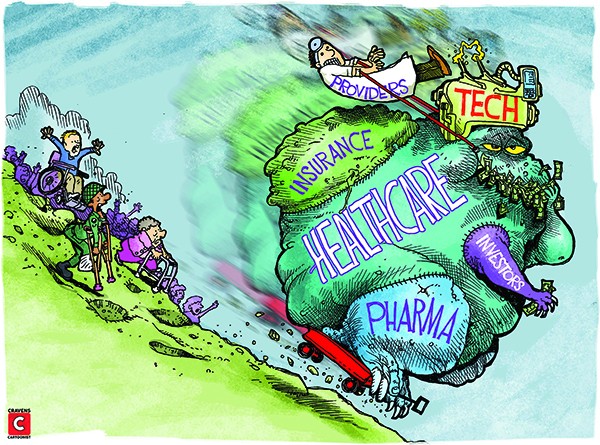Greetings from the shores of Naromiyocknowhusunkatankshunk Brook. Not the literal shores, to be honest. I just wanted to work the name of that stream into my column. I’m actually down the road a couple of miles, near the little town of Sherman, Connecticut, where my wife and I rented an Airbnb for 10 days and are being visited off and on by our children and grandchildren who live in and around New York City.
Sherman is a quaint village (pop. 3,527) named after Roger Sherman, the only person who signed all four founding documents of the United States, but you knew that. (I think he was also one of the stars of Rocky and Bullwinkle, but don’t quote me.) Anyway, Sherman, the town, has one intersection, a nearby boutique IGA and liquor store, and not much else, except lots of swell-looking white clapboard houses and zillions of orange day lilies everywhere.
According to Wikipedia, Sherman is home to Daryl Hall, Jeffrey Toobin, Diane von Furstenberg, and Rob Zombie, though we have not run into any of them during our stay.
Our Airbnb is pseudo-rustic and has lots of beds and futon couches spread over three levels, plus a couple of big decks to sit out on and enjoy the surrounding forest, so it’s been nice. The temperatures have been wonderful — low- to mid-70s — and the rain sparse enough to allow plenty of beach and fishing time in the crystal waters of nearby Candlewood Lake. I have also spent some time fly-fishing in the melodiously named Squantz Pond, which is either a damn lake or the largest pond in America. Anyway, we are having good times.
Except for the smoke, and honestly, it’s only been really bad for one day. It seems we scheduled our vacation to happen just as those annoying Canadians began wafting wildfire detritus into the colonies again. (We really need to secure that border!) But it didn’t last long, so we held our breath and persevered.
We also timed our vacation to coincide with the hottest day on Earth since record-keeping began more than 40 years ago, according to scientists at the University of Maine’s Climate Reanalyzer project, but that was just luck. Over the July 4th holiday, the global average temperature reached an all-time high of 62.9 degrees Fahrenheit. This followed a June that was the warmest on record, worldwide. The heat index 70 miles south of us in New York City was 100 degrees on Independence Day, even though the actual temperatures in Sherman and New York were not that far apart. The difference being that we were in the woods, near cool water, and under tall, shady trees while New York’s concrete-and-exhaust-filled hellscape was exacerbating the sun’s heat to near-intolerable levels.
And, meanwhile in Memphis …
I pull up some local news sources on my laptop and read that things are pretty much in line with the new normal for summer: 100-degree days, one after another. Oh boy, I think, I cannot wait to get back.
I find myself heat-scrolling on what’s left of Twitter and end up reading a vox.com story called “Bus stops and playgrounds are too damn hot.” It addresses a problem that cities will increasingly deal with as temperatures rise over the next couple of decades: a lack of shade. It sounds simplistic, but it’s true. The temperature difference between the corner of Union and Cooper and the center of Overton Park’s Old Forest — four blocks away — can be more than 20 degrees, according to a study conducted a few years back.
While it’s true that Memphis is blessed with a canopy of trees over much of its landscape, we still need to ensure that public spaces such as bus stops and the like are adequately shaded. That would also include our public parks — making sure canopies, picnic shelters, or other shade options are plentiful, as well as water features such as sprinklers and wading pools. The days of frolicking in a big, open, unshaded space during the dog days of summer are behind us, Memphis. And for what it’s worth, the new Tom Lee Park is looking increasingly like genius — a project that’s gotten here just in time. Take it from Sherman.





 Greg Cravens
Greg Cravens 